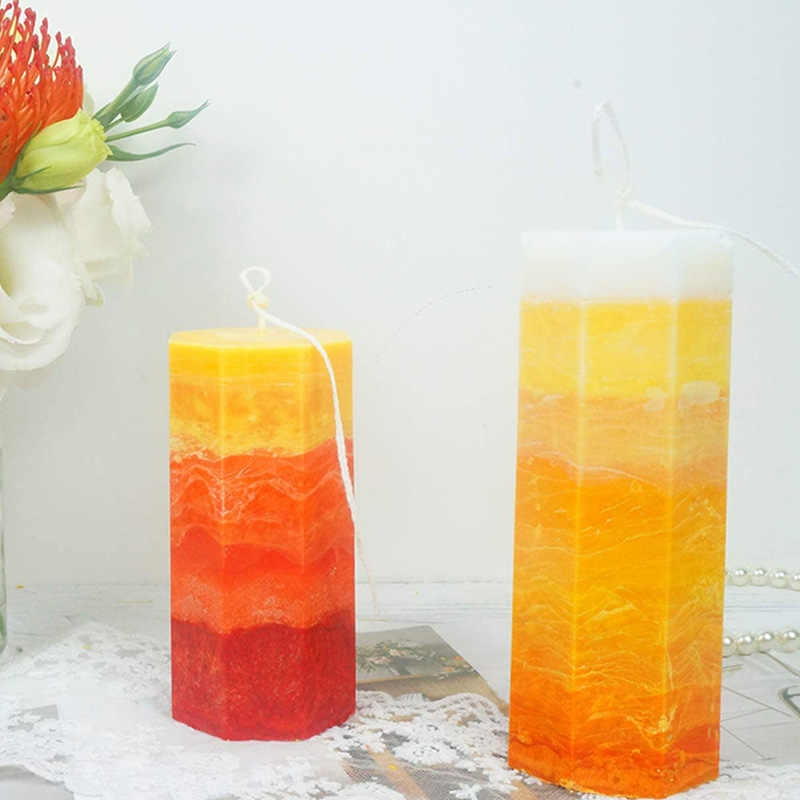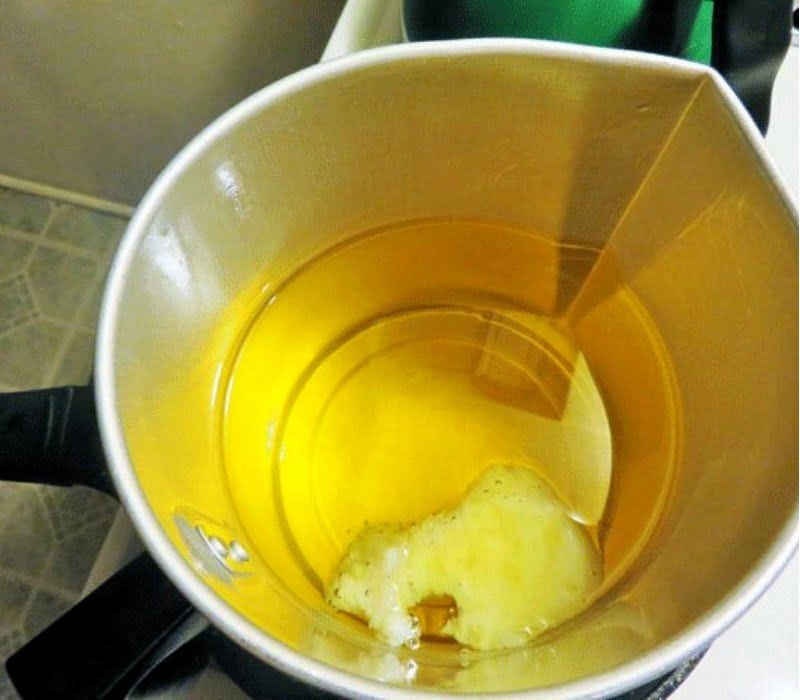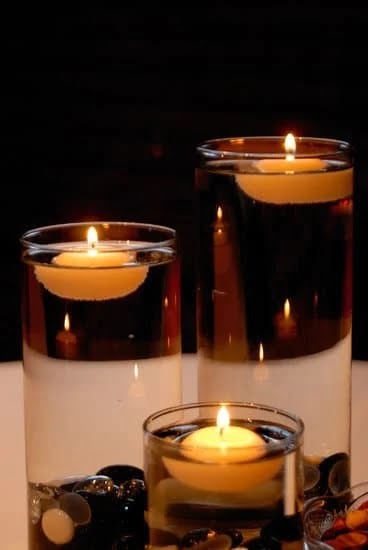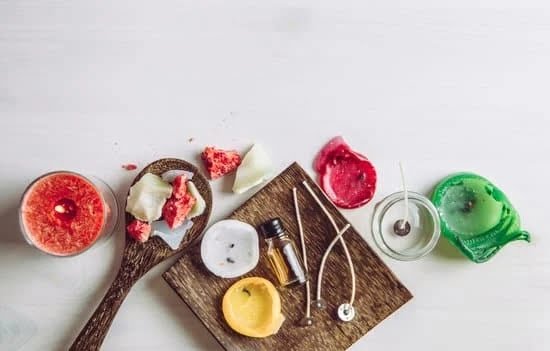Are you looking for a new hobby that not only lights up your space but also fills the air with delightful scents? Look no further than candle making with essential oils. In this article, we will explore the art of creating homemade candles using the power of natural essential oils.
Enhance your home or office ambiance by learning how to make candles infused with your favorite essential oil scents. From lavender to eucalyptus, discover the countless possibilities of aromatherapy through this simple and enjoyable craft. Whether you’re a beginner or an experienced candle maker, this step-by-step guide will help you create personalized candles that promote relaxation and well-being.
Join us as we delve into the benefits of using essential oils in candle making, explore how to select the right oils for your recipe, and provide tips and tricks for enhancing your candle making process. Learn how to create a haven of tranquility with custom-made candles while ensuring safety precautions are taken when working with essential oils. Get ready to unleash your creativity and enjoy the therapeutic effects of your handmade candles.
The Benefits of Using Essential Oils in Candle Making
When it comes to candle making, using essential oils can provide a wide range of benefits that go beyond just creating a pleasant aroma. Essential oils are natural, aromatic compounds extracted from plants, and each oil has its own unique therapeutic properties. Incorporating essential oils into your candle making recipe can create a soothing and calming atmosphere, promote relaxation, and even offer potential health benefits.
Therapeutic Properties
One of the main benefits of using essential oils in candle making is the therapeutic properties they possess. Different essential oils have different effects on the mind and body, such as promoting focus and concentration, reducing stress and anxiety, or even uplifting the mood. For example, lavender essential oil is known for its calming and relaxing properties, while citrus oils like lemon or orange can help to invigorate and energize.
Natural Aromatherapy
Another advantage of using essential oils in candles is the natural aromatherapy they provide. Aromatherapy is the practice of using natural plant extracts to promote health and well-being. When you burn a candle infused with essential oils, you’re not only filling the room with a delightful scent but also dispersing the therapeutic benefits of the oils into the air. This can help to create a serene and peaceful ambiance in your space.
Avoiding Synthetic Fragrances
Additionally, by incorporating essential oils into your candle making recipe, you’re avoiding synthetic fragrances commonly found in commercial candles. Many store-bought candles contain artificial scents that may be made from potentially harmful chemicals. By using natural essential oils instead, you can enjoy the aroma without exposing yourself to potentially harmful substances often found in synthetic fragrances.
Selecting the Right Essential Oils for Your Candle Making Recipe
Understanding Essential Oils
Before you start selecting essential oils for your candle making recipe, it’s important to understand the different types of essential oils available. Essential oils are highly concentrated plant extracts that offer various therapeutic benefits and aromas. Each essential oil has its own unique properties and characteristics, so it’s essential to choose the right ones for your specific needs and preferences.
Factors to Consider
When selecting essential oils for your candle making recipe, there are several factors to consider. The first is the scent profile you want to achieve. Some essential oils have a calming effect, while others have an energizing or uplifting aroma. Consider the purpose of your candles and choose essential oils that align with that intention. You should also consider the compatibility of different essential oils when creating blends, as some scents may not mix well together.
Popular Essential Oils for Candle Making
There is a wide variety of essential oils available, but some are more commonly used in candle making than others. Lavender, known for its relaxing properties, is a popular choice for homemade candles. Citrus scents like lemon and orange can add a refreshing and invigorating aroma to your candles. Additionally, floral essential oils such as rose or jasmine can provide a sweet and romantic fragrance to your homemade candles.
By carefully considering these factors, you can select the right essential oils for your candle making recipe and create personalized, aromatic candles that cater to your specific preferences and needs.
Step-by-Step Guide to Making Candles With Essential Oils
For those interested in creating their own personalized candles with essential oils, a step-by-step guide can provide the necessary instructions to ensure a successful and enjoyable candle making experience.
To start, gather all the materials needed for the candle making process. This includes wax, wicks, essential oils, a double boiler or microwave-safe container, a thermometer, and a heat source.
Next, prepare the wax by melting it in a double boiler or microwave-safe container. Once the wax reaches the appropriate temperature (typically around 180-185°F), add the desired amount of essential oils. It is recommended to use approximately 1 ounce of essential oil per pound of wax for optimal fragrance.
After adding the essential oils, carefully pour the melted wax into your chosen candle mold or container. Place the wick in the center of the mold and secure it in place using a wick holder or chopsticks laid across the top of the mold. Allow the candle to cool and harden for several hours before trimming the wick to your desired length.
Following these steps will result in homemade candles infused with delightful aromas from essential oils. With this easy-to-follow guide, anyone can enjoy creating their own custom scented candles at home using their favorite essential oil blends.
Tips and Tricks for Enhancing Your Candle Making Process With Essential Oils
When making candles with essential oils, there are a few tips and tricks that can help enhance the entire process and improve the quality of your homemade candles. One key tip is to ensure that you are using high-quality essential oils. The purity and quality of the essential oils will directly impact the scent and therapeutic benefits of your handmade candles. Look for essential oils that are 100% pure and not diluted with synthetic fragrances.
Another important tip is to carefully measure the amount of essential oil you use in your candle making recipe. Adding too much essential oil can affect the burning properties of the candle, causing it to produce excessive soot or even become a fire hazard.
On the other hand, adding too little may result in a faint or barely noticeable scent when the candle is lit. It’s best to follow a recommended ratio for adding essential oils to your candle wax, usually around 1 ounce of essential oil per pound of wax.
Additionally, consider experimenting with different combinations of essential oils to create unique scents for your homemade candles. Mixing complementary essential oils can produce captivating aromas that cater to various preferences and promote specific moods or feelings. For example, combining lavender and chamomile essential oils can create a calming and relaxing scent perfect for unwinding after a long day.
| Tips and Tricks | Benefits |
|---|---|
| Use high-quality essential oils | Improved scent and therapeutic benefits |
| Measure carefully | Avoid excessive soot and weak scents |
| Experiment with different combinations | Create unique and captivating aromas |
Safety Precautions When Working With Essential Oils in Candle Making
When working with essential oils in candle making, it’s important to prioritize safety to ensure a positive and hazard-free experience. Essential oils are highly concentrated and potent, which means they should be handled with care. Here are some safety precautions to keep in mind when working with essential oils in candle making.
First and foremost, it’s crucial to handle essential oils in a well-ventilated area. This helps to minimize the inhalation of concentrated fumes, which can cause irritation or adverse reactions. Additionally, using gloves when handling essential oils can prevent direct contact with the skin, as some essential oils can cause irritation or allergic reactions.
Another important safety precaution is to carefully read and follow the manufacturer’s guidelines for each essential oil used in your candle making recipe. Some essential oils have specific usage recommendations that should be taken into consideration to ensure safe handling and optimal results.
It’s also recommended to store essential oils in dark glass bottles away from direct sunlight and heat sources. Proper storage helps preserve the quality and potency of the essential oils, ensuring that they maintain their beneficial properties for candle making.
| Safety Precautions | Importance |
|---|---|
| Work in a well-ventilated area | Minimizes inhalation of fumes |
| Use gloves when handling | Prevents skin contact and potential irritation |
| Read manufacturer’s guidelines | Follow specific usage recommendations for each oil |
| Store in dark glass bottles | Preserves quality and potency |
By following these safety precautions, you can enjoy the process of creating your own homemade candles with essential oils while ensuring a safe and enjoyable experience. Remember that while essential oils offer many benefits in candle making, being mindful of safety measures is key to achieving the best results.
Creative Ideas for Customizing Your Candle Making Recipe With Essential Oils
When it comes to making candles with essential oils, there are endless creative ideas for customizing your recipe to create unique and beautifully scented candles. Here are some creative ideas to help you make the most out of your candle making experience:
- Layered Scents: Experiment with combining different essential oils to create layered scents in your candles. Start with a base note such as sandalwood or patchouli, add a middle note like lavender or geranium, and finish with a top note such as bergamot or lemon.
- Herbal Infusions: Infuse your melted wax with dried herbs like rosemary, lavender, or mint before adding essential oils. This adds a natural touch and extra fragrance to your candles.
- Decorative Additions: Consider adding decorative elements to your candles, such as colorful dried flowers, citrus zest, or cinnamon sticks. These not only enhance the visual appeal of your candles but also add subtle fragrance when burned.
These creative ideas can help take your candle making recipe with essential oils to the next level and create a truly personalized and aromatic experience for yourself and others. Whether you’re making candles for personal use or as gifts for friends and family, experimenting with different combinations and additions can lead to delightful results that go beyond just scent.
Remember to always test out small batches when trying out new ideas to ensure that the final product meets your expectations. With a bit of creativity and experimentation, you can create beautiful, fragrant candles that bring joy and relaxation into any space.
Conclusion
In conclusion, using essential oils in candle making not only adds a lovely fragrance to your home but also offers numerous aromatherapy benefits. By carefully selecting the right essential oils for your candle making recipe, you can create a customized scent that suits your preferences and provides the desired therapeutic effects. Whether you are looking to relax, uplift your mood, or promote better sleep, there is an essential oil out there to meet your needs.
Additionally, making candles with essential oils allows for a personalized touch to your home decor and ambiance. The step-by-step guide provided in this article offers a straightforward approach to creating homemade candles with essential oils, giving you the freedom to customize and experiment with different scents. From lavender for relaxation to citrus for a refreshing atmosphere, the options are endless when it comes to infusing your candles with essential oils.
Lastly, it is important to remember the safety precautions when working with essential oils in candle making. Using high-quality materials and following proper guidelines will ensure a safe and enjoyable candle making process. With these tips and tricks in mind, along with creative ideas for customization, you can enjoy both the aesthetic and therapeutic benefits of your homemade candles made using the candle making recipe with essential oils.
Frequently Asked Questions
What Is the Ratio of Essential Oils to Wax for Candles?
The ideal ratio of essential oils to wax for candles is typically around 6-10% of the total candle weight. This means if you’re making a 100g candle, you would use 6-10g of essential oils.
How Do You Make Homemade Candles With Essential Oils?
To make homemade candles with essential oils, start by melting your wax in a double boiler, then adding the essential oils once the wax reaches the correct temperature. Pour the mixture into your chosen containers and let it cool and solidify.
What Are the Best Combinations of Essential Oils for Candles?
Some popular combinations of essential oils for candles include lavender and bergamot for a relaxing scent, lemongrass and eucalyptus for an energizing aroma, or orange and clove for a warm, comforting fragrance. Experimenting with different blends is key to finding your favorite combinations.

Welcome to my candle making blog! In this blog, I will be sharing my tips and tricks for making candles. I will also be sharing some of my favorite recipes.





